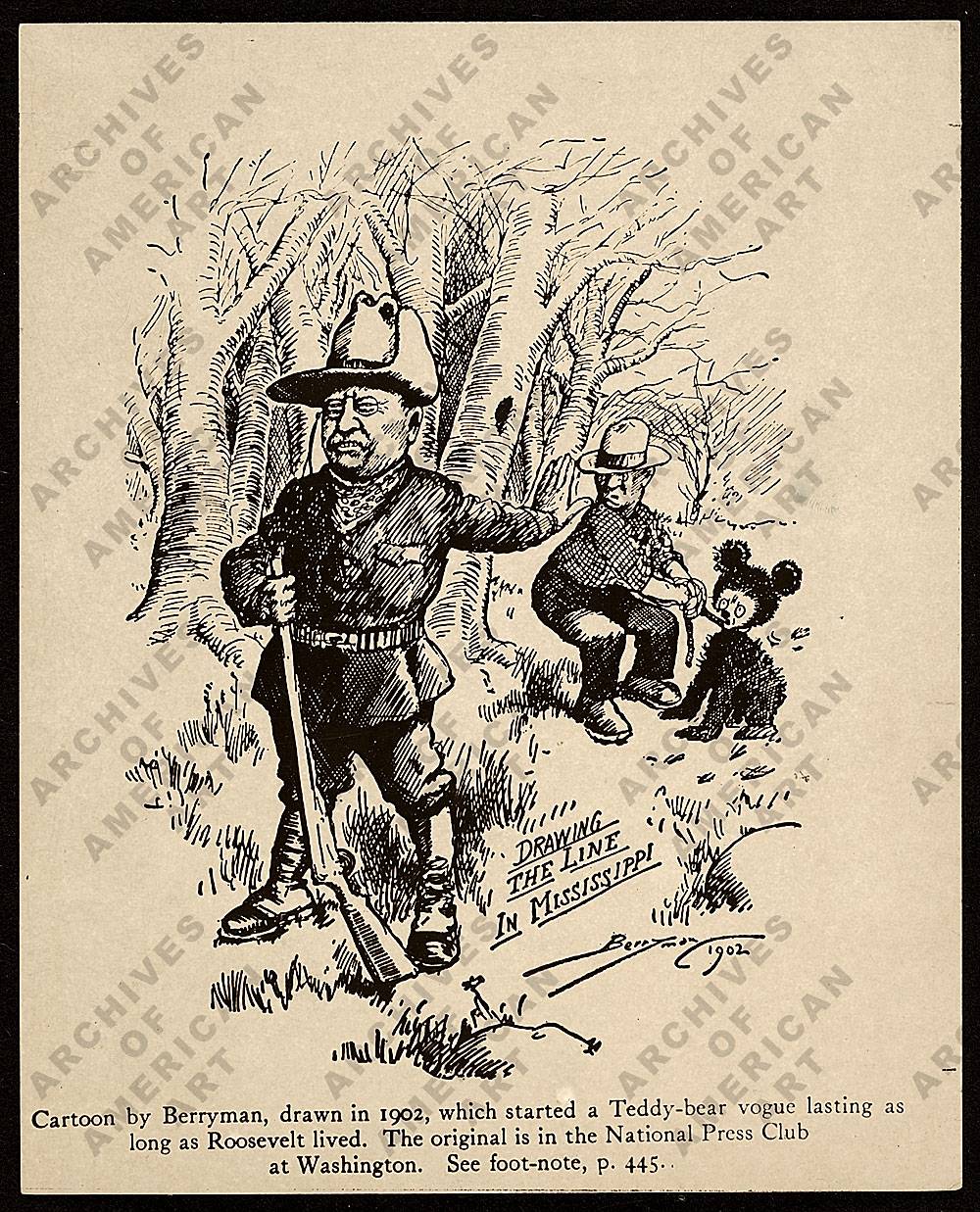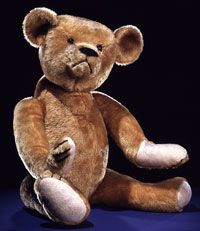Time to think about Christmas presents?
How about the time-honored gift every child adores????
A Teddy Bear!!!!
1. This cartoon started it all!
Drawing the Line in Mississippi by Clifford Berryman: This cartoon is believed to have triggered the teddy bear craze in the U.S.

2. The cartoon is a detail from a series called "The Passing Show" about President Theodore Roosevelt's purported refusal to shoot a chained bear while on a hunting trip in Missississippi. The little bear, Bruin, became so popular that Berryman used him frequently in later cartoons on many different topics. Although Berryman helped popularize the association of Teddy Roosevelt with bears, he did not invent the toy teddy bear.
Drawing the line in Mississippi
3. --PRESIDENT CALLED AFTER THE BEAST HAD BEEN LASSOED, BUT HE REFUSED TO MAKE AN UNSPORTSMANLIKE SHOT--
This was the headline of the Washington Post on November 15, 1902 when President Theodore Roosevelt refused to shoot a 235-pound black bear that had been tied to a tree. When encouraged to shoot it, the President is rumored to have said, "I've hunted game all over America and I'm proud to be a hunter. But I couldn't be proud of myself if I shot an old, tired, worn-out bear that was tied to a tree." Teddy Bear
4. The cartoon appeared in a panel of cartoons drawn by Cliffored Berryman in The Washington Post on November 16, 1902. It caused an immediate sensation and was reprinted widely.
Apparently this cartoon even inspired Morris and Rose Michtom of Brooklyn, New York, to make a bear in honor of the president's actions.
5. Morris Michtom wrote to Roosevelt to ask his permission to make a small bear cub and call it "Teddy's Bear." His son, Benjamin Michtom, said that although Roosevelt agreed to lend his name to the new invention he doubted it would ever amount to much in the toy business. In 1903, the Ideal Toy Company was born, soon to become a multimillion-dollar business. By 1908, the bear had become such a popular toy that a Michigan minister warned that replacing dolls with toy bears would destroy the maternal instincts in little girls.Teddy Bear

How about the time-honored gift every child adores????
A Teddy Bear!!!!
1. This cartoon started it all!
Drawing the Line in Mississippi by Clifford Berryman: This cartoon is believed to have triggered the teddy bear craze in the U.S.

2. The cartoon is a detail from a series called "The Passing Show" about President Theodore Roosevelt's purported refusal to shoot a chained bear while on a hunting trip in Missississippi. The little bear, Bruin, became so popular that Berryman used him frequently in later cartoons on many different topics. Although Berryman helped popularize the association of Teddy Roosevelt with bears, he did not invent the toy teddy bear.
Drawing the line in Mississippi
3. --PRESIDENT CALLED AFTER THE BEAST HAD BEEN LASSOED, BUT HE REFUSED TO MAKE AN UNSPORTSMANLIKE SHOT--
This was the headline of the Washington Post on November 15, 1902 when President Theodore Roosevelt refused to shoot a 235-pound black bear that had been tied to a tree. When encouraged to shoot it, the President is rumored to have said, "I've hunted game all over America and I'm proud to be a hunter. But I couldn't be proud of myself if I shot an old, tired, worn-out bear that was tied to a tree." Teddy Bear
4. The cartoon appeared in a panel of cartoons drawn by Cliffored Berryman in The Washington Post on November 16, 1902. It caused an immediate sensation and was reprinted widely.
Apparently this cartoon even inspired Morris and Rose Michtom of Brooklyn, New York, to make a bear in honor of the president's actions.
5. Morris Michtom wrote to Roosevelt to ask his permission to make a small bear cub and call it "Teddy's Bear." His son, Benjamin Michtom, said that although Roosevelt agreed to lend his name to the new invention he doubted it would ever amount to much in the toy business. In 1903, the Ideal Toy Company was born, soon to become a multimillion-dollar business. By 1908, the bear had become such a popular toy that a Michigan minister warned that replacing dolls with toy bears would destroy the maternal instincts in little girls.Teddy Bear


